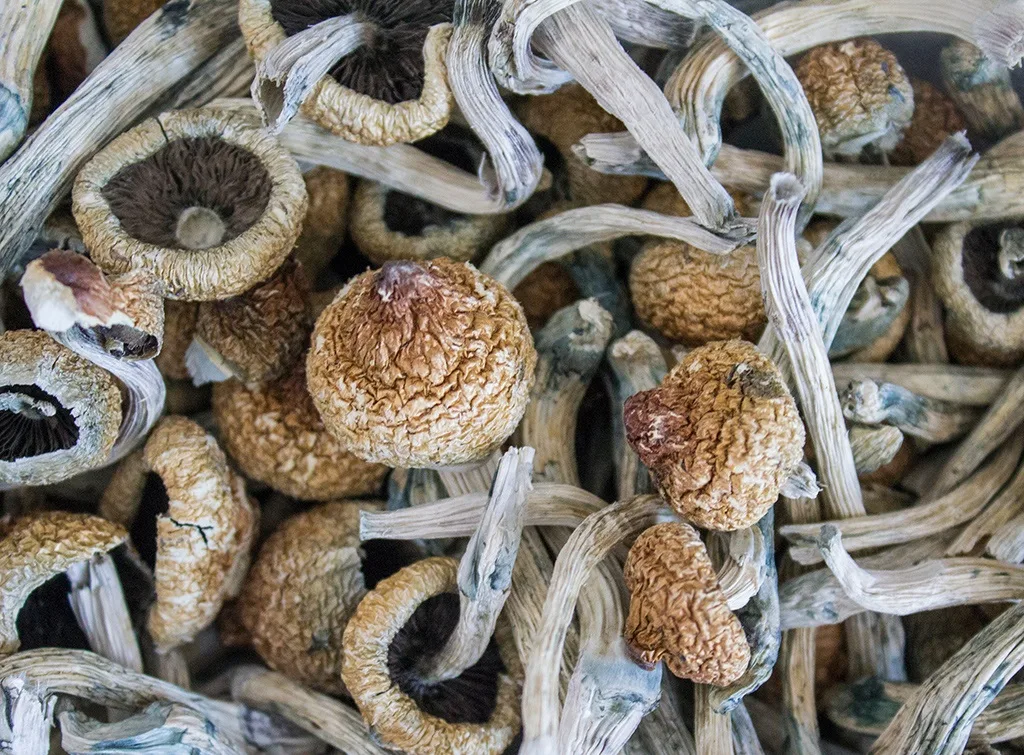A federal health agency has recently published a page highlighting the potential benefits of psilocybin, a psychedelic substance, for mental health and addiction treatment.

Dried psilocybin.
The page, titled “Psilocybin for Mental Health and Addiction: What You Need To Know,” was posted on the National Center for Complementary and Integrative Health (NCCIH) website, which is part of the National Institutes of Health (NIH).
This new page provides information about psilocybin, including its origins, legal status, and research. The NCCIH notes ongoing federally funded research into psilocybin’s effects on conditions such as pain, migraines, and psychiatric disorders.
The page emphasizes three main areas where psilocybin might be beneficial: alcohol use disorder, anxiety, and depression. It references a 2022 study indicating that psilocybin-assisted therapy could reduce heavy drinking days over 32 weeks compared to a control group, suggesting its potential utility in treating alcohol use disorder.
Regarding anxiety and existential distress, the page discusses a 2020 analysis of four small studies involving 117 participants, most of whom had life-threatening cancer. The analysis suggested that psilocybin, combined with psychotherapy, might improve anxiety, depression, and existential distress, though the authors caution about possible biases due to study limitations.
For depression, the NCCIH page cites a growing body of research indicating that psilocybin-assisted therapy could be effective in the short to medium term. It mentions a 2023 meta-analysis showing reduced depression symptoms for up to five weeks and a study from the same year noting rapid symptom reduction within eight days of a single psilocybin dose combined with therapy, with benefits lasting six weeks. However, another study from 2021 found no significant difference between psilocybin-assisted therapy and a common antidepressant combined with psychotherapy.
The NCCIH cautions against using psilocybin to delay seeking professional medical advice and encourages individuals to discuss any complementary health approaches with their healthcare providers. The agency is funding research into psilocybin’s safety and efficacy for chronic pain management, while other studies are examining its effects on chronic low-back pain, depression, and potential interactions with selective serotonin reuptake inhibitors (SSRIs).







